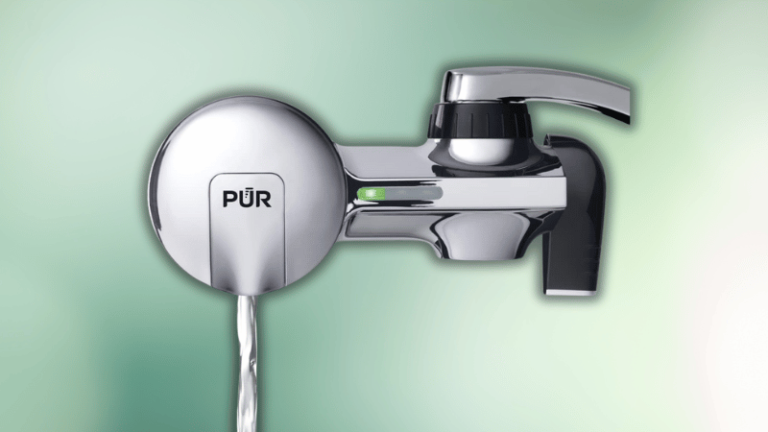Tap water filters have become essential in many homes — not just for cleaner water, but for a cleaner planet. While most tap water in the U.S. meets safety standards, aging pipes, chlorine, and hidden contaminants can still make their way into your glass.
Instead of guessing which faucet-mounted or under-sink filter to buy, let’s zoom out and look at the brands behind the filters. Because when you choose a tap water filter, you’re also choosing a company — and not all are created equal.
Some brands lead the charge in sustainable product design, ethical manufacturing, and even plastic waste reduction. Others? Not so much.
In this guide, we won’t just help you find a tap water filter that works — we’ll help you find one that aligns with your values. Let’s dive into the most trusted names in water filtration and explore how their products support a more eco-conscious lifestyle.
6 Standout Tap Water Filter Brands With a Green Mission
1. PUR: Making Clean Water More Accessible and Eco-Friendly
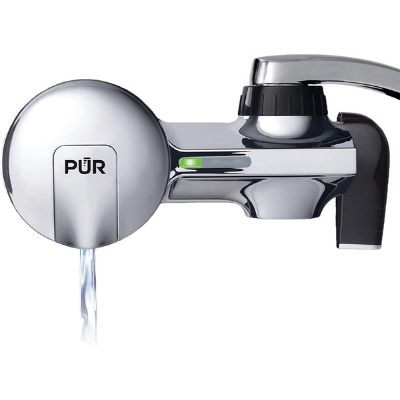
PUR has long been a household name in tap water filtration — but it’s not just about taste and purity. At its core, PUR champions accessible clean water while pushing for more sustainable lifestyles. The brand’s mission ties closely to environmental responsibility, with a strong focus on reducing single-use plastic through long-lasting filters that make bottled water obsolete.
When it comes to sustainability, PUR stands out by offering recyclable filters through its partnership with TerraCycle, a program that lets consumers send used filters in for responsible recycling — a big win for landfill diversion. Their filtration systems, from faucet mounts to pitchers, are also BPA-free and built with reduced-plastic designs, ensuring lower impact during both production and disposal.
Manufacturing-wise, PUR emphasizes third-party certifications for contaminant removal, showcasing a commitment not just to health, but also to ethical quality assurance. While PUR doesn’t position itself as a zero-waste company, it makes steady strides toward minimizing waste and increasing transparency in its supply chain.
If you’re looking to reduce your environmental footprint without compromising water quality, PUR remains a dependable and evolving brand that aligns with eco-conscious values.
2. Waterdrop: Minimalist Design Meets Maximum Sustainability
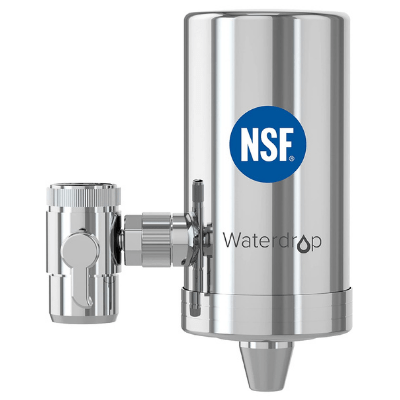
Waterdrop is one of the newer players in the tap water filter world, but it’s already making serious waves — especially among sustainability-minded consumers. The brand isn’t just about ultra-slim filters and smart tech. At its core, Waterdrop is built around a clean-water mission that’s rooted in eco-responsibility.
Their products are designed with energy-saving technology and longer-lasting filters, meaning fewer replacements, less plastic waste, and a lower overall carbon footprint. The reverse osmosis systems and under-sink filters are made using lead-free, BPA-free materials, ensuring safety and sustainability go hand in hand.
Waterdrop also partners with The Water Project, helping deliver safe drinking water to communities in need — turning each purchase into a small act of global good. Their packaging is another standout: minimal, recyclable, and plastic-reduced.
In terms of manufacturing, Waterdrop commits to ISO-certified facilities with an emphasis on responsible sourcing and environmental compliance. Their filters are rigorously tested for NSF certifications, ensuring both ethical production and performance.
For those who value modern design, water quality, and planet-friendly choices, Waterdrop delivers a clean, future-forward option that doesn’t compromise sustainability for style.
3. Brita: The Original Filter Powerhouse Turning Green
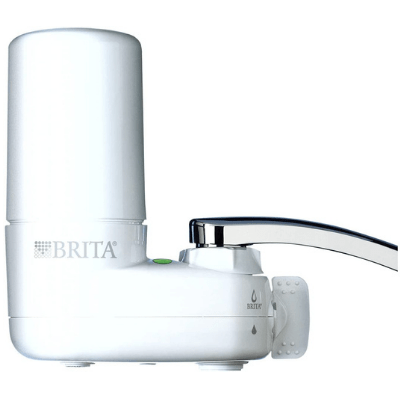
Brita has been a trusted name in water filtration for decades — and while it’s best known for its iconic pitchers and faucet filters, the brand has also become a leader in eco-conscious water solutions.
At the heart of Brita’s sustainability mission is its push to eliminate bottled water waste. By promoting tap water filtering at home, Brita claims to help users replace up to 1,800 plastic bottles per year with just one of their filters. That’s a massive dent in the plastic pollution problem.
Brita also partners with TerraCycle to recycle used filters, which aren’t curbside-recyclable. This closed-loop program keeps millions of filters out of landfills annually. Their filters and pitchers are made BPA-free, and recent models feature reduced plastic content and more compact packaging to further minimize environmental impact.
When it comes to ethics, Brita is transparent about NSF testing for health and safety standards. While they don’t position themselves as fully circular or carbon-neutral (yet), they’ve made strides in corporate sustainability reporting and social impact partnerships, especially around water access.
For anyone wanting a widely available, user-friendly, and low-waste water filter option, Brita continues to evolve — proving that legacy brands can still lead the charge toward a greener future.
4. Culligan: Trusted Water Experts with a Growing Green Streak
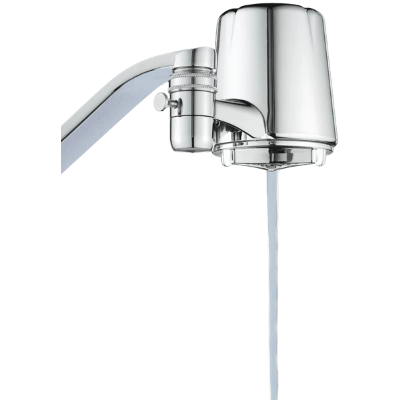
Culligan is one of the oldest names in water filtration, known for its deep roots in whole-home water systems and point-of-use filters. But beyond the blue tanks and “Hey Culligan Man!” commercials, the brand is making big strides in sustainability and ethical manufacturing.
A major plus? Culligan’s commitment to durability and system longevity. Their under-sink and whole-house filters are built to last, significantly reducing the need for frequent replacements — and the waste that comes with them. The company has also embraced reusable filter housings, which helps cut down on single-use plastic cartridges over time.
Culligan has invested in energy-efficient manufacturing practices and ISO-certified production, emphasizing ethical sourcing of filtration media and plumbing-grade materials. Their systems are designed to conserve water, especially when compared to traditional reverse osmosis setups that waste more than they save.
On the corporate front, Culligan is starting to prioritize social responsibility, including water access initiatives and sustainable product development goals. While they’re still catching up to some newer, eco-first brands, they’ve laid a strong foundation for integrating green practices into a long-standing legacy.
For homeowners seeking a trusted, high-performance filter system with a growing focus on planet-friendly innovation, Culligan is definitely worth considering.
5. iSpring: Quietly Powerful, Consciously Sustainable
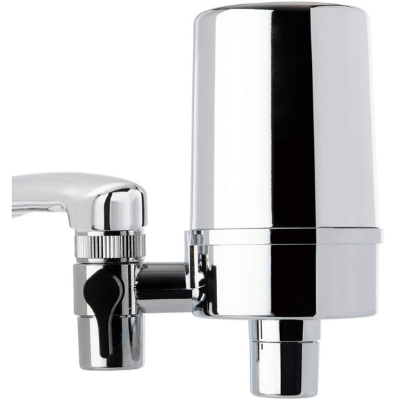
iSpring may fly a little under the radar compared to big-name brands, but when it comes to eco-conscious filtration, it punches way above its weight. Specializing in reverse osmosis systems, whole-house filters, and under-sink setups, iSpring builds products with an eye on both performance and planet health.
One of iSpring’s standout features is its emphasis on durable, multi-stage filtration systems. These are built to last, with replaceable parts and reusable housings that cut back on plastic waste. iSpring filters also boast low wastewater ratios, which is a major plus for anyone worried about the environmental downsides of traditional RO systems.
Their commitment to third-party testing and certifications (like NSF/ANSI) shows a dedication to transparency and product safety — essential for anyone concerned about both human and environmental health.
On the sustainability front, iSpring keeps a tight focus on minimal packaging, long filter life, and ethical sourcing of filter media, often using coconut shell-based activated carbon — a renewable material that’s better for the environment than petroleum-based alternatives.
If you’re all about high-efficiency filtration without high-impact waste, iSpring offers a refreshingly responsible option for the eco-conscious household.
6. Wingsol: Stainless Steel Simplicity with a Sustainable Edge
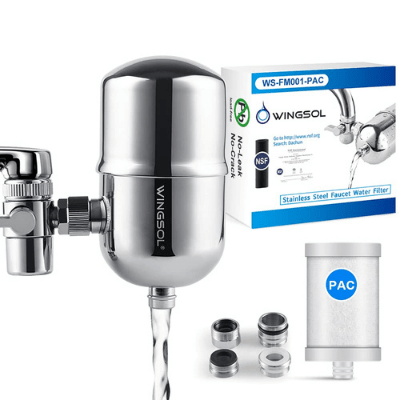
Wingsol isn’t the biggest name in the tap water filter game — but don’t sleep on it. This brand takes a no-frills, durability-first approach that fits beautifully into an eco-conscious lifestyle.
What makes Wingsol stand out is its use of food-grade stainless steel housings instead of plastic. Not only does this mean zero BPA, but it also gives the product a long life span — reducing the need for frequent replacements and cutting down on plastic pollution. It’s a small design choice with big sustainability implications.
The brand focuses on inline filtration and point-of-use systems, which offer a greener alternative to bottled water and single-use filters. Their filters typically use natural coconut shell carbon, a renewable material that’s both effective and eco-friendly.
Wingsol also leans into minimal packaging and emphasizes tool-free maintenance, reducing waste during both installation and upkeep. While it doesn’t shout about sustainability in marketing, its product design choices quietly reflect low-waste, long-life values.
For eco-minded minimalists who want solid performance without unnecessary plastic or high maintenance, Wingsol is a brand that walks the sustainability talk — even if it doesn’t always scream it.
What is a Tap or Faucet Water Filter?
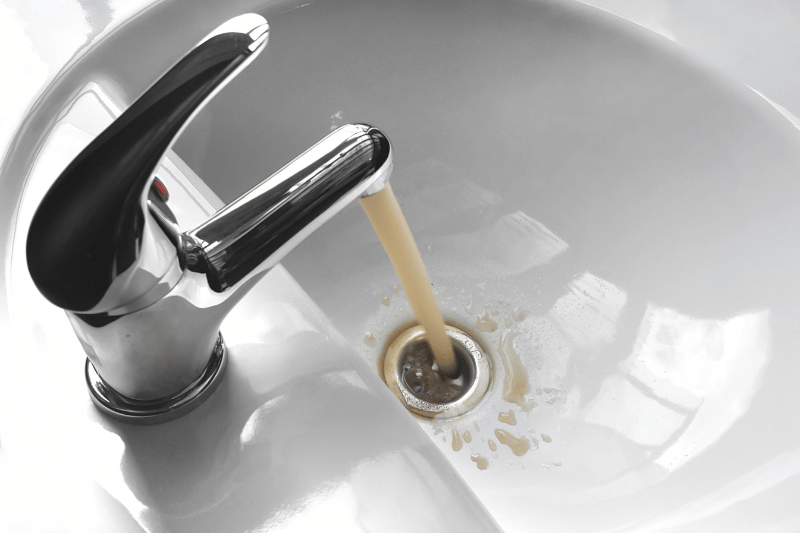
Ever wondered what a tap or faucet water filter is all about? It’s your go-to gadget for cleaning up your tap water right at home. Imagine a superhero for your tap, zapping away dirt and nasties so you get clean, fresh water whenever you want it.
And the best part?
These filters work their magic on-demand, without storing water, keeping things simple yet super effective.
Here’s how it works: turn on your tap, and the water passes through the filter before it makes its way to your glass, just as easy as pouring water straight from the tap. Plus, these nifty devices come with a switch that lets you choose between filtered and tap water – talk about having the best of both worlds!
Why consider getting one? Well, despite our water going through treatment, it can still carry contaminants that you’d rather not drink. The Environmental Protection Agency (EPA) has rules for more than 90 contaminants in our drinking water, including chemicals like arsenic and lead, and even tiny baddies like bacteria. A faucet filter is your frontline defense, ensuring your water is not just clear, but clean.
Installing a faucet filter could be a game-changer for your home, keeping your water tasting great and extending the life of your filter cartridge. Plus, it’s a small step towards peace of mind, knowing you’re drinking water that’s as pure as it can be.
How Does a Tap Water Filter Work?
Ever wondered how that little device on your faucet makes your tap water go from questionable to quenching? Let’s break it down, making it super easy to understand how tap water filters, or as some might call them, faucet-mounted filters, do their magic. These gadgets are all about giving you cleaner, tastier water straight from your kitchen or bathroom tap.
Here’s the scoop: tap water filters aren’t just one-trick ponies. They come packed with a multi-stage filtration process designed to catch and remove a whole bunch of unwanted stuff from your water.

Stage 1
First off, we start with a layer that’s all about catching the big guys – think rust, sand, and other tiny particles you’d rather not sip with your morning coffee. This is where the sediment gets stopped in its tracks, thanks to a non-woven screen.
Stage 2
Next up, we dive into the world of activated carbon filters. This stage is like a mega-magnet for chemicals. Each granule of carbon is like a tiny, porous sponge, soaking up nasties like chlorine. The beauty of this stage is in its pace – the slower the water goes through, the cleaner it gets.
Stage 3
Finally, we’re tackling the heavyweights: lead, mercury, and their troublesome friends. This last stage clears out those menacing heavy metals and any lingering bad tastes or smells, leaving your water tasting like it’s supposed to – clean and refreshing.
But why stop there?
If you’re looking to further up your water game, consider diving into the world of water filter pitchers, replacement filters, or reverse osmosis filtration systems for an even deeper clean. Each option, from faucet filters to osmosis filtration systems, offers a unique way to ensure your drinking water is as pure as can be.
Don’t forget about the little things, like changing your filter cartridge regularly, to keep your water tasting great.
Types of Tap Water Filters

Deciding you want cleaner water is the easy part. Figuring out which water filter to choose? That can feel like navigating a maze. Let’s simplify the options:
Faucet-Mounted Filters
Perfect for those who want a quick fix at the kitchen sink. These gadgets snap right onto your faucet, giving you the power to switch between tap and filtered water effortlessly. It’s like having a mini water purification station right in your home.
Water Filter Pitchers
These are as straightforward as they come. A pitcher that holds a filter, water pours in, gets filtered, and voila – clean water. They’re handy if you love your water cold (just stash it in the fridge) and they’re portable, too. The only catch? You might find yourself refilling it more often than you’d like due to its size.
Reverse Osmosis Systems
Now, this is the heavyweight of water filters. Installed under your sink, it involves pushing water through a special membrane and several filters, promising you some of the cleanest water you can get. Culligan, a big name in water treatment, says it’s a thorough multistage process that leaves you with pristine water for drinking, cooking, and more. The trade-off? It’s pricier and needs a bit more elbow grease to set up.
Each type has its perks and considerations, from the convenience of a faucet filter to the comprehensive cleaning power of a reverse osmosis system. Your choice depends on what fits your lifestyle, budget, and how much you’re looking to dive into the world of water filtration.
Tap Water Filter Certifications
When you’re eyeing a faucet filter to clean up your water, you’re probably looking to ditch the bad stuff like lead, chlorine, cadmium, and mercury.
But how do you know if the filter’s up to the task?
That’s where the big names in water safety come into play: the Water Quality Association (WQA), the National Sanitation Foundation (NSF), and the American National Standards Institute (ANSI). These organizations put water filters through the wringer to ensure they meet top-notch standards.
Keep an eye out for certifications like NSF/ANSI Standard 53 (for reducing health-related contaminants), NSF/ANSI Standard 42 (for improving taste and odor), NSF/ANSI 401 (for emerging contaminants), and NSF/ANSI 372 (for low lead compliance). These are your tickets to knowing a filter’s got the seal of approval from those in the know.
But, here’s a heads-up: while many faucet filters do a stand-up job at scrubbing away a host of chemicals and unsavory elements, there’s a sneaky group they might miss – PFAs. These are tough cookies that don’t break down easily and can stick around in the environment and your water. The U.S. Environmental Protection Agency (EPA) has flagged them as persistent chemicals.
For the nitty-gritty on which filters can handle what and to get into the specifics of water certifications, diving into our water filter pitcher reviews could give you the lowdown and help you make an informed choice.
What Are the Benefits of Having a Tap Water Filter?
Ever wondered why installing a tap water filter might just be one of the smartest moves for your health and the planet?
First off, tap water filters are like your personal health guard, stripping away the bad guys like heavy metals, nasty chemicals, bacteria, and even the tiniest specks of dirt. That weird taste in your tap water that makes you think twice about drinking it? A filter can handle that, making your water taste the way it should – clean and refreshing.
One super handy feature of tap water filters is their flexibility. Imagine needing some water to give your plants a drink or to clean your kitchen counter. No need to waste filtered water on that! With a simple flick of a switch, you can choose unfiltered water for tasks that don’t need the purity, saving your filtered water for when it really matters.
Now, let’s talk about installation – it’s a breeze!
Forget about calling in a plumber and shelling out big bucks. You can set up a tap water filter yourself, no toolbox required. It’s as easy as pie, and you’ll feel like a DIY champ.
But here’s the kicker – choosing a tap water filter is a win-win for you and Mother Earth. Every time you refill your glass from that filter, that’s one less plastic bottle heading to the landfill.
Think about it: a single filter cartridge can replace up to 700 plastic water bottles. And when it’s time for a new cartridge, the old ones are recyclable, making your environmental footprint even smaller.
Do You Need A Tap Water Filter?
Wondering if you need a water filter at home? It’s a common question without a one-size-fits-all answer. In the U.S., the Environmental Protection Agency (EPA) ensures that public water meets certain standards under the Safe Drinking Water Act. But, even with these regulations, not every possible contaminant is covered. Plus, there’s always a chance for contaminants to sneak in after the water has left the treatment plant, whether through aging pipes or other means.
Remember the situation in Flint, Michigan? That was a stark reminder of how treatments at the water plant can sometimes cause more problems, like lead getting into the water through pipes.
To get a clearer picture of what’s in your water before it even reaches your tap, check out your local water supplier’s Consumer Confidence Report (CCR). This report, which water suppliers are required to provide, can usually be found online. It’s filled with details about your water’s quality straight from the source.
But to truly know what’s coming out of your tap at home, consider testing your water. Whether you opt for a professional water-quality lab or a home test kit, testing is the best way to find out what’s in your water.
So, while the need for a water filter varies, staying informed about your water quality and taking steps to test it can give you peace of mind and help ensure your water is safe and clean.
